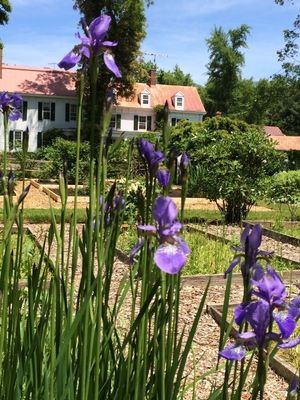On a late winter afternoon, diminished sun light filters through Pitney Farm’s mighty hard woods onto undisturbed snow leading up to the idle mansion’s front door.
There are no footprints. Even in the dead of winter, with flowers and leaves gone, the site radiates the grandeur and great wealth that built it and maintained it.
As Mendham Township’s elected officials deliberate what to do with the Pitney property they bought five years ago, how much do we really know about this place? It goes back 11 generations, all in one family, to when New Jersey was a colony that was heavily reliant on the institution of slavery.
Out back, the paint has faded on the Bicentennial Farm sign afixed to one of the red barn buildings that are vestiges of what was once a working farmstead. There’s no marking to note that slaves were part of the life of this place, as they were throughout all of Morris County and the entire state of New Jersey, from its earliest white settlement, up until the end of the Civil War.
Back in 2008, before it moved to buy the property, Mendham Township got a report by CRCG, The Cultural Resource Consulting Group, which cataloged what is known about the historical significance of the site. The seven-page report highlighted the accomplishments of the Pitney family which can trace its roots back to the 1720s in the area.
Mahlon Pitney, one of the families patriarchs, fought along side George Washington at the Battle of Long Island in 1776. Another Mahlon Pitney served two terms in Congress and was nominated by President Howard Taft to serve on the United States Supreme Court.
From the GRCG report, we know the farm grew to encompass more than 700 acres and included a dairy operation.
The Pitney Farm was the center of a hub of productive activity which included an iron forge and distillery. The Pitney peaches and apple brandy were famous in their day. The place was prominent enough that it was a stop on the Rockaway Valley Railroad (Rock-A-Bye Baby) line that ran from Whitehouse Station in Hunterdon County to Morristown back in the late 19th century.
The GRCG analysis concludes the Pitney site has a multi-layered historical significance because the 12 acre farmstead “demonstrates the evolution of the multi-generational homestead of an important and influential family that traces its roots to the Revolution” and “distinguished themselves in the area of local, state and Federal law.”
But as for the day-to-day life on the colonial farm that laid the foundation for the family’s commercial and civic achievements not much is known.
“Little information was uncovered concerning the family’s farming activities during the mid to early 18th century” according to the CRCG report prepared by Gregory Dietrich, senior architectural historian.
It makes no reference to the well-documented role of slavery at the Pitney Farms.
There are multiple extant historical records available on line and in the county library that offer Pitney as a prism of place through which to see just how much Mendham, and indeed our entire state, was very much reliant on, and enmeshed in, the day-to-day brutality of slavery.
In May of 1793, New Jersey’s Supreme Court in the case “of Negro James, a Boy about Thirteen Years of age, claiming his freedom” ordered that James Pitney, listed as the defendant, “discharge” the black teen from “illegal detention.”
According to the history of the case, as recounted in the court order, three years earlier Pitney bought the African-American boy from relatives of Jasper Smith, of Hunterdon County. Smith died in 1769 but in his will called for the freeing “all my negroes” including “Negro Juddy,” the mother of the boy now in Pitney’s possession.
Evidently Smith’s heirs had other ideas.
“The Court having taken due consideration, are unanimously of Opinion, that the said Negro Juddy” was “a free woman by the Will of the said Jasper Smith” which in turn meant that Juddy’s son James was, as the state’s highest court saw it, “entitled to his freedom.”
Just four years later that same Supreme Court, in a very similar habeas corpus petition brought this time on behalf of a Native American known to the court only as “Rose,” had a very different ruling that would keep this petitioner in slavery.
“They (the Indians) have been so long recognized as slaves in our law, that it would be as great a violation of the rights of property to establish a contrary doctrine at the present day, as it would be in the case of Africans; and as useless to investigate the manner in which they originally lost their freedom,” the Court ruled.
Just like the weighty decisions before the courts today, like gay marriage, the definition of slavery was a painful work in progress.
Bob Hennelly is one of WBAI's own contributing producers on 99.5FM.
